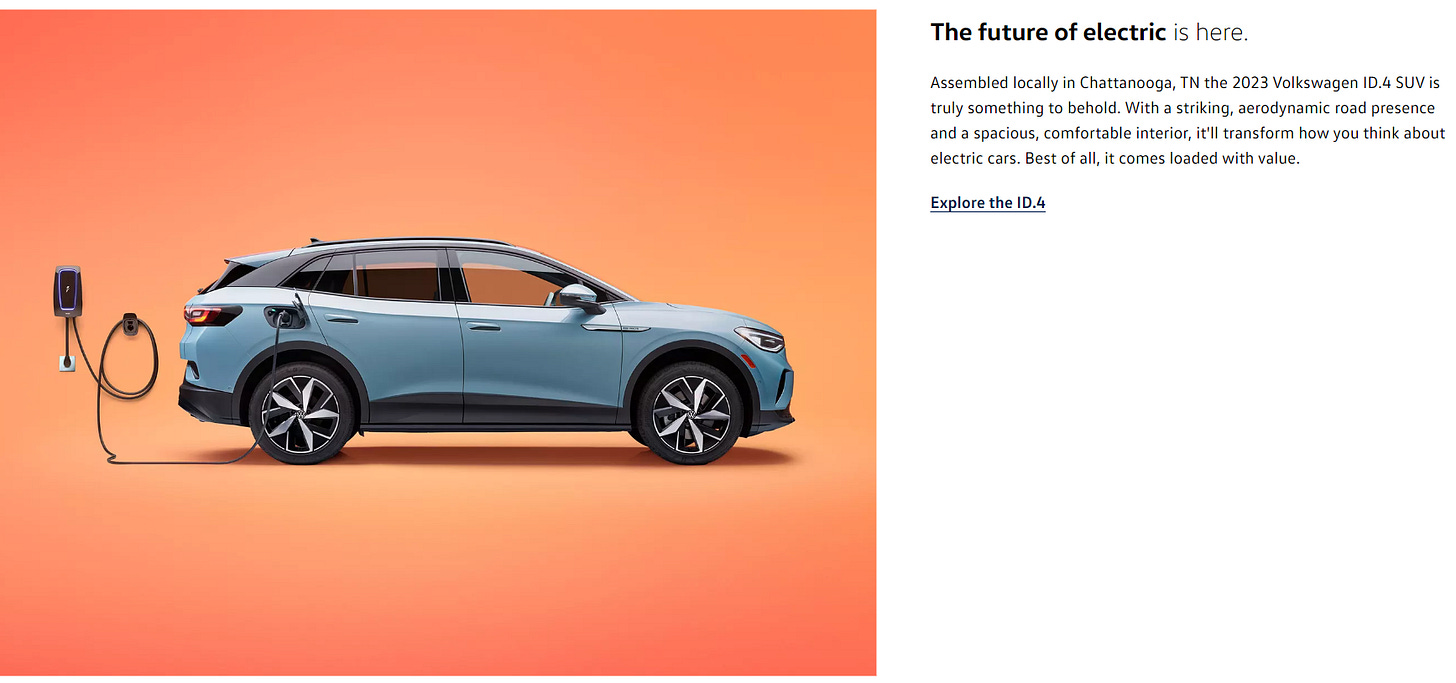Strategic Management and Sustainability #54
VOLKSWAGEN AG - STRATEGIC CHANGES FOLLOWING DIESELGATE
Good morning, everyone!
Today's newsletter deals with the strategic realignment of Volkswagen AG in the wake of the diesel scandal in 2015.
How did it come about, what were the strategic reactions and has the company learned from its mistakes? We want to get to the bottom of all these questions in the following. I hope you enjoy reading this article.
This article has (951) words and a reading time of about (5)min.
Curated by Nathalie.
“Dieselgate” & how it came to this Scandal
Volkswagen AG has a long, rich and not entirely scandal-free history, but has nevertheless defended its position as one of the largest car manufacturers in the world since its foundation in 1937. In 2021 it presented a turnover of approximately 223 billion euros, sales of around 9.3 million vehicles, more than 662,000 employees worldwide and ten sector-related subsidiaries (Grieger & Lupa, 2015 and Kords, 2021).
However, a major setback that the family-owned company has had to overcome so far was the diesel scandal, which filled the media all over the world in 2015.
On 18 September 2015, the United States Environmental Protection Agency (EPA) uncovered diesel emissions fraud in some VW models sold since 2009. Software called Defeat Device detected that several cars emitted up to 40 times more pollutants on the road than during emissions testing, contrary to the claims made (EPA, n.d.). Worldwide, more than 11 billion vehicles were affected by the fraud and Volkswagen has subsequently had to defend itself against numerous lawsuits, mainly in the USA and Europe (Classen, 2017).

The reasons for this fraud were certainly the increasing stakeholders’ demand as well as tightened regulations regarding sustainable and environmentally friendly products. So, VW AG like many other companies, found itself in the predicament between profitability and sustainability.
However, it was not this gulf itself but ultimately the handling of its pressure that was the real driver for the growth of the scandal. The company, which was, in that days, essentially characterised by poor internal communication, a lack of transparency and a hierarchical "culture of fear" (B.Soltermann, 2021), found itself succumbing to a maelstrom of bungling and concealment and became ever more deeply entangled in the fraud.
Volkswagen´s strategic reactions
“As insurmountable a challenge as this seemed at the time, Volkswagen wasted little time pushing towards recovery.” ~ James Welch, 2019
Almost seven years have passed since the scandal was uncovered and a lot has changed at Volkswagen.
The aim of the interanal strategic corporate change was to establish more agile systems throughout the organisation in the long term in order to be able to react more quickly and efficiently to environmental changes and problems (Welch, 2019). Particularly decisive for its implementation were changes in the corporate culture and leadership style, which were adapted in the direction of modern and thus more emotional leadership approaches. The classic hierarchical power structure was to be replaced by an innovative and employee-inclusive culture, so that both employees and leaders could actively participate in the strategic change.
The most important step of the transformation process was therefore a common formulation of the new corporate strategy "NEW AUTO - Mobility for Generations to Come" (VW AG, 2022). With the vision of becoming the world's leading electric vehicle manufacturer, the focus was placed on developments within the automotive sector in order to secure the company's continued existence (VW AG, 2022). Therefore, with the help of realignment and elaboration of its performance potentials, the group turned to the growing market of e-mobility in order to establish itself as the market leader. For example, the original target of selling 35% of all new cars sold in the form of fully electric vehicles by 2030 was recently increased to 70% (Amelang, 2021). In addition to e-mobility, the group is also focusing on the development of software services and the production of its own batteries; in a longer-term project, the area of autonomous driving is also to be further expanded (Schmidt, 2021).
Central to the group's change process was all in all the creation and communication of a common vision, the recruitment of new managers and, associated with this, the development of a sustainable, future-proof corporate strategy.
Résumée
Despite the lingering aftermath of the scandal, including the damage to its reputation, legal proceedings, convictions and fines, Volkswagen AG has nevertheless managed to build a new corporate culture and long-term vision with the help of a new strategic direction and numerous changes in the internal corporate structure.
What positive effects this strategic reorientation of Volkswagen AG with its several goals concerning the electric vehicle market as well as the sustainability approaches, will have in the future, ultimately depends on whether the values achieved so far and the positively changed structures could be anchored deeply and sustainably enough in the entire company, so that the group can face new problems in an agile and efficient manner.
Thank you for reading, I hope you enjoyed it!
Sources:
Amelang, S. (2021). Clean Energy Wire. https://www.cleanenergywire.org/factsheets/dieselgate-forces-vw-embrace-green-mobility
Classen, U. (2017). Die wahren Ursachen der VW-Krise. Manager magazin. https://www.manager-magazin.de/unternehmen/autoindustrie/volkswagen-die-wahren-ursachen-der-krise-a-1159434.html
EPA (United States Environmental Protection Agency). (o.D.). Learn about Volkswagen Violations. https://www.epa.gov/vw/learn-about-volkswagen-violations
Grieger, M., Lupa, M. (2015). Vom Käfer zum Weltkonzern. Die Volkswagen Chronik. Historische Notate – Schriftenreihe der Historischen Kommunikation der Volkswagen Aktiengesellschaft. (17), 1-350. https://www.volkswagenag.com/de/group/history.html
Kords, M. (2021). Statistiken zur Volkswagen AG. Statista. https://de.statista.com/themen/231/volkswagen-ag/#dossierKeyfigures
Schmidt, H. (2021). VW geht in die zweite Planungsstufe der E- Mobilität und setzt auf Softwareentwicklung. Neue Zürcher Zeitung. https://www.nzz.ch/mobilitaet/vw-wagt-mit-new-auto-den-schritt-zum-mobilitaetsdienstleister-ld.1635411?reduced=true
Soltermann, B. (12.11.2021). Interview im Rahmen eines Projekts der HSG, St. Gallen.
Volkswagen AG. (2022). Konzernstrategie NEW AUTO – Mobility for Generations to come. https://www.volkswagenag.com/de/strategy.html
Welch, J. (2019). The Volkswagen recovery: leaving scandal in the dust. Journal of Business strategy, 3-13. Von https://doi.org/10.1108/JBS-04-2018-0068





